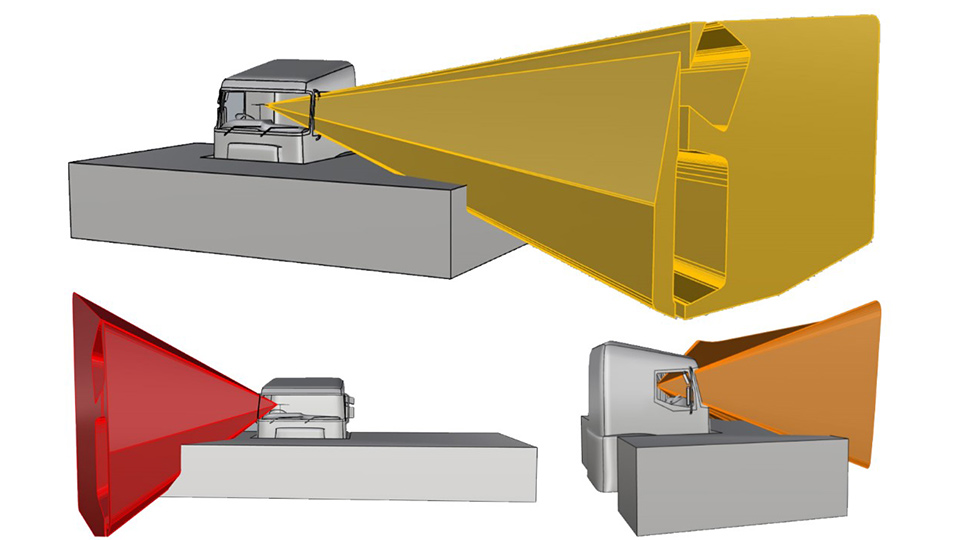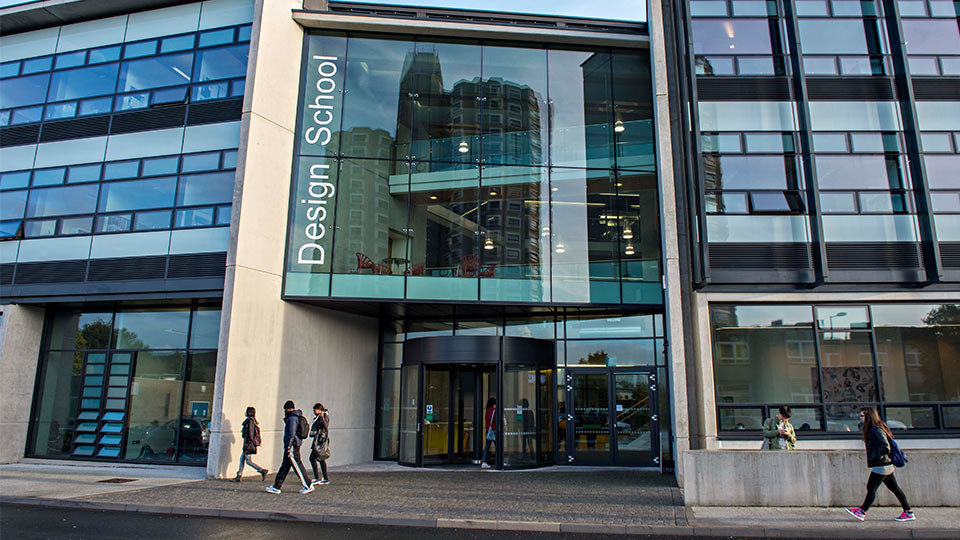TfL (Transport for London) has this week launched the final public consultation on Direct Vision Standard proposals, which will tackle road danger at its source by reducing Heavy Goods Vehicles' (HGVs') blind spots that are the cause of so many tragic deaths and life-changing injuries.
In 2017 around 4,000 people were killed or seriously injured in collisions on London's streets. TfL research shows that between 2015 and 2017 HGVs were disproportionately involved in fatal collisions, with 63 per cent of those involving people cycling and 25 per cent of those involving people walking. This is despite HGVs only making up four per cent of the overall miles driven in the capital.
Restrictions in an HGV driver's field of vision, or 'blind spots' have been identified as a significant contributory factor in collisions.
The Direct Vision Standard for Heavy Goods Vehicles is the first initiative of its kind in the world to categorise HGVs depending on the level of a driver's direct vision from a cab and is the result of a recommendation made by Loughborough University Design researchers.
This scheme, and associated Safety Permit for HGVs that have retrofitted a Safe System, will reduce road danger for people across the capital and is due to be introduced in 2020 to improve vehicle safety and increase visibility of vulnerable road users.
HGVs will be given a rating between 'zero-star' (lowest) and 'five-star' (highest), with only those vehicles rated 'three-star' and above, or which have comprehensive safety systems, able to operate in London from 2024.
Loughborough Design School (LDS) has been hugely instrumental in bringing the Direct Vision Standard to where it is today.
Their involvement began in 2015 when the LDS team were commissioned by TfL to explore the blind spot size found in 19 trucks using their own CAD system SAMMIE CAD.
This demonstrated that blind spot sizes vary considerably due to different design features of trucks, which led to the recommendation for a Direct Vision Standard.
The team were then commissioned to define and test the Direct Vision Standard and have done so over the past two years in collaboration with TfL and a stakeholder group.
This has involved highly accurate virtual tests that allow a measurement of how much a driver can see by simulating drivers’ vision of a defined space in close proximity to the sides and front of a truck.
The more that a simulated driver can see of this space around the truck, the better the truck performs.
This combines to produce a minimum standard for acceptable direct vision and the star rating system that shows the best vehicles on the market.

The volume of space around the truck that is visible to a driver is created for the left, front, and right windows.
The Direct Vision Standard forms a key part of the Mayor of London’s Vision Zero approach to eliminating all deaths and serious injuries from London's roads by 2041.
The European Commission has followed London's lead by including direct vision in the revised General Safety Regulation, which is the leading piece of EU road safety legislation.
This is a major step in reducing road danger and will help make all HGVs safer across Europe.
LDS and TfL have also worked with vehicle manufacturers to rate a sample of Euro IV and Euro V HGVs, in the same way, the Euro VI HGVs were rated. These ratings are now available directly from manufacturers.
Commenting on the Direct Vision Standard, Dr Steve Summerskill said: “This successful project is the result of the efforts of a number of staff in the Loughborough Design School, who have worked as a team to produce an innovate and accurate testing technique that has been validated by vehicle manufacturers.
“The result will have a beneficial effect on the safety of vulnerable road users (VRUs) in the UK capital and further afield, with adoption at a European-level currently being explored by TfL and the LDS team.
“This effort involves the LDS and TfL teams attending United Nations Economic Commission for Europe (UN ECE) meetings on VRU safety.
“An impact assessment performed by TRL (Transport Research Laboratory) on behalf of the EU showed that European adoption would save hundreds of lives per year.”

Adoption at a European-level is currently being explored by TfL and the LDS team.
TfL is now asking people to have their say on the final scheme proposals with a particular focus on the HGV safety permit processes.
Christina Calderato, Head of Delivery Planning at TfL, said of Loughborough Design School’s contribution: “We have worked with Loughborough University and vehicle manufacturers to develop a way in which to measure the level of direct vision from an HGV cab.
"With the help of Loughborough, manufacturers and the freight industry, London is leading the way with truck safety and we invite views on our final proposals. Our Direct Vision Standard will fundamentally improve the safety of HGVs in London.
"Road safety should not end at our borders, which is why we’re delighted that the European Commission is following our lead – helping ensure that all HGVs are safer across the UK and Europe.”
TfL’s timeline for the Direct Vision Standard is as follows:
- October 2019: The first permits will be issued. Trucks rated 0* will need to upgrade to a Safe System in order to get a permit
- 2020: Enforcement begins
- 2024: The minimum Direct Vision Standard star rating increases from one to three star or a progressive Safe System
Loughborough Design School's 'The definition, production and validation of the Direct Vision Standard (DVS) for HGVs' report, published in December 2018, can be found here.
ENDS

